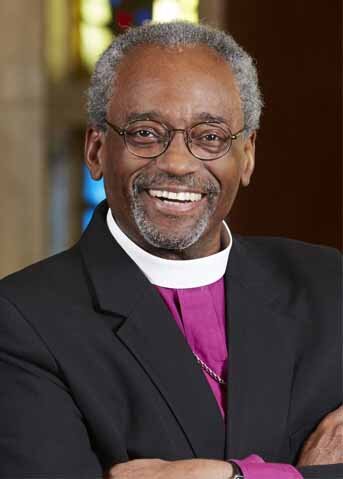Angst or peace: it's your choice
/[Based on a sermon by the Reverend Canon Anne Moore]
“We live in a culture where snipers live behind laptops and smart phones. Fewer people are interested in debate and more are looking for enemies to eviscerate. Some have become unhinged and others are on the ledge.”
Anne quoted these words from a blogger (whose name she hadn’t taken note of) in a recent sermon. Do you feel you are among the ‘unhinged’? She confessed to the same feelings she sees affecting so many others these days: anxiety, despair, anger, fear, disgust, frustration, embarrassment, hostility, and panic. Perhaps angst best sums it up.
Upsetting and unsettling information bombards us from all directions, and as Christians we know we really can't, really shouldn’t, simply turn off the news. We need to be aware of what’s going on firstly, to pray, but also to be able to engage others in conversation.
While we can never understand ‘what in the world is going on’ or how to fix it, we must refuse to be bent out of our Christian shape by it. None of the mess is of God, who is still in control and who alone has the solutions. Earthly governments can only put band-aids on people’s problems, Anne reminded the congregation. But the gospel can bring healing to souls.
“Do not put your trust in princes, in human beings, who cannot save.... Blessed are those whose help is the God of Jacob, whose hope is in the LORD their God.” (Psalm 146:3,5)
“We want and need hope here,” she made clear after reading the above scripture. “Hope is not dreaming or a vague aspiration. It’s not simply wanting things to turn out well while remaining uncertain whether they actually will. Hope is the absolute certainty we have that God is good and that God’s promises are true.”
Further, we can use the hope we cultivate in ourselves to help the troubled around us. “The despair, anxiety and fear we see in people around us is the very opportunity we have to share the hope and good news of Jesus with them.”
The Almighty will accomplish His purposes, no matter the political leaders and disasters cramming our newscasts. We see in scripture how God has been able to use some exceptionally evil rulers such as Cyrus, Nebuchadnezzar, Caesar and Nero to fulfill His will. He has worked out His purposes under every condition imaginable, from Egypt through Babylon and onto Rome and beyond. We must keep the hope, and cultivate peace.
“We don’t need to pray for peace, we have it,” she concluded. “It is in us. We have that peace but must use it and share it.”
“Seek peace and pursue it.” (1 Peter: 3b)
“Peace I leave with you; my peace I give to you. I do not give to you as the world gives. Do not let your hearts be troubled, and do not let them be afraid.” (John 14:27)









